Fifteen Crime Mediators Sworn in Today
The High Court of Belize is taking a big step to tackle its case backlog before the 2025 criminal calendar kicks in. Today, fifteen newly trained criminal mediators were sworn in by Chief Justice Louise Blenman at the High Court in Belize City. These mediators bring a fresh approach to resolving criminal cases, offering an alternative to traditional court trials. Through mediation, cases can now be settled amicably if both parties agree. News Five’s Marion Ali was on the scene for the swearing-in and brings us this report.
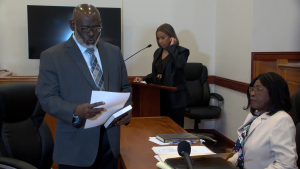 Marion Ali, Reporting
Marion Ali, Reporting
Today’s swearing-in of fifteen criminal mediators is set to make a big dent in the High Court’s case backlog. Previously, all criminal cases had to go through lengthy trials, but now, with this new mediation process, selected cases can be resolved more efficiently, freeing up the courts. Chief Justice Louise Blenman is pleased with this addition, though she notes that mediation won’t be suitable for every criminal matter. This new approach promises to streamline the justice system significantly.
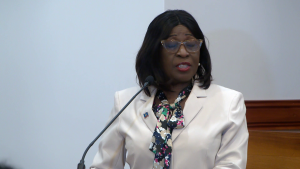
Louise Blenman
Louise Blenman, Chief Justice of Belize
“It is impossible to have all of the matters go to trial. And in fact, when the rules were contemplated, it was never the expectation that all trials should go to trial, all matters should go to trials. Mediation is essential and this is so across the commonwealth. In fact, to the contrary, the expectation is usually that 90 percent of matters should be settled either by way of mediation or settlement and not full trial.”
The final draft legislation for criminal mediation is expected to be ready by 2025. This will establish the guidelines for mediators handling criminal cases. Justice Candace Nanton provided an example of a criminal dispute that could be effectively resolved through mediation, highlighting the potential impact of this new approach.
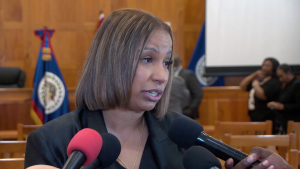
Candace Nanton
Candace Nanton, High Court Judge
“Sometimes there may be a family dispute that the parties don’t necessarily want to continue with the courts, but court proceedings have been initiated, and a better resolution may be something other than imprisonment, for example. So, it would depend on the parties’ consent, it would depend on the views of the Office of the DPP. It would also depend on the selection criteria being met that will be contained within the mediation rules.”
Laura Alvarado, the President of the Alternative Dispute Resolution Association of Belize and a newly sworn-in mediator, explained that if the two parties can’t settle their differences through mediation, the case will have to proceed to trial. This highlights the importance of mediation as a first step, but also acknowledges that not all disputes can be resolved outside the courtroom.
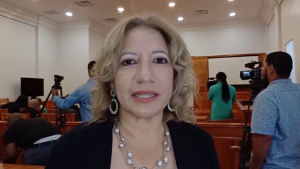
Laura Alvarado
Laura Alvarado, President, ADRAB
“The two parties and a neutral individual will discuss the matters, and then refer it back to the court if an agreement is not settled, then the matter will go back to court and the litigation will take place thereafter.”
Criminal and Civil Mediator, Consuelo Godfrey explained that the training was for a total of eighty hours split in two segments.
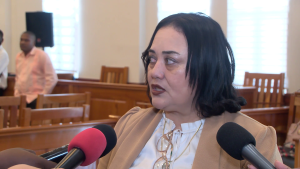
Consuelo Godfrey
Consuelo Godfrey, Criminal and Civil Mediator
“There’s an introduction to mediation that is about a 40-hour training, uh, time frame. And then from there you have to do an advanced training, which is another 40 hours, and then get sworn in. And then once you get sworn in, you can then do the criminal mediation, which is another advanced course in mediation. Like family mediation, you have to do a specific type of training for criminal mediation because the dynamics and the nuances in, criminal matters is different than civil matters. I can tell you as a as a mediator who practices with the high courts, it does take time for cases to be referred to mediation. But what I really like about the mediation process is that it gives parties an opportunity to talk. It gives parties an opportunities to have their say. Something that doesn’t normally happen in in in courts.”
Justice Candace Nanton said that Belize is among the leading countries in the region to resolve civil and criminal matters through mediation. Marion Ali for News Five.





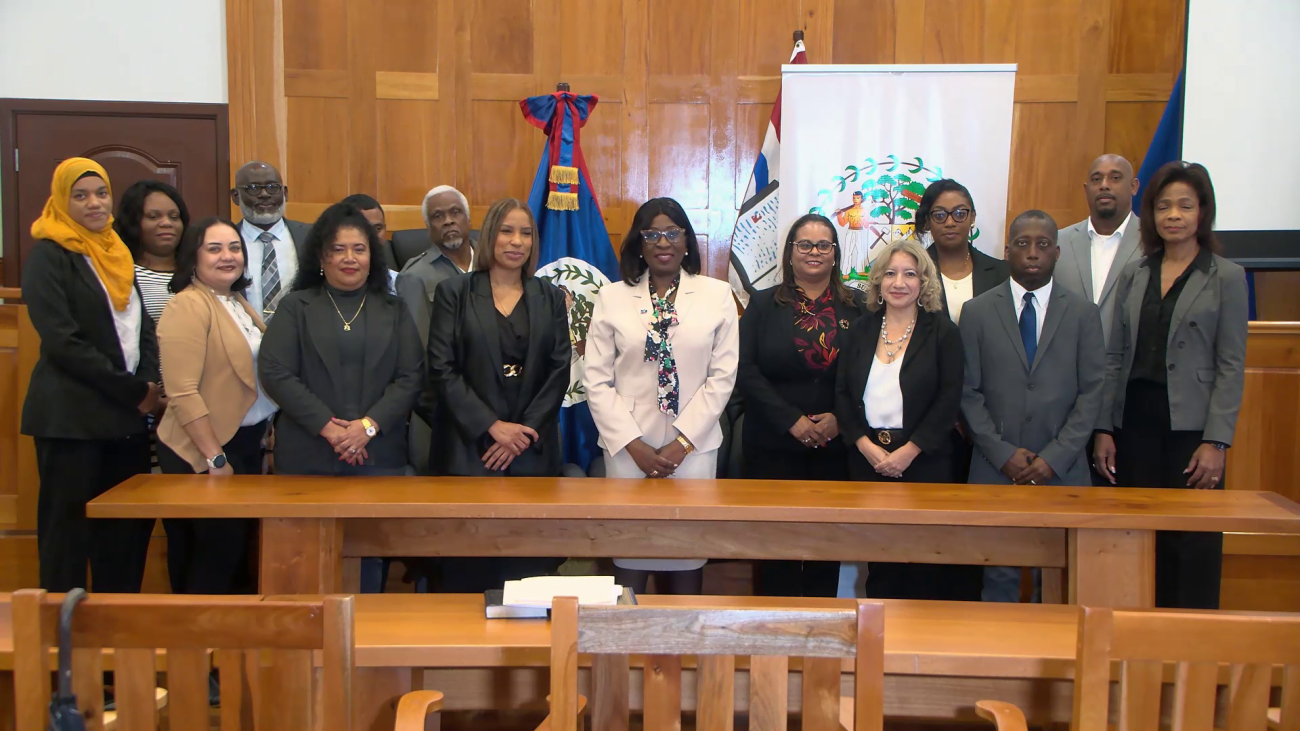
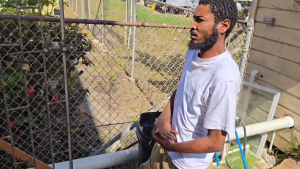
Facebook Comments